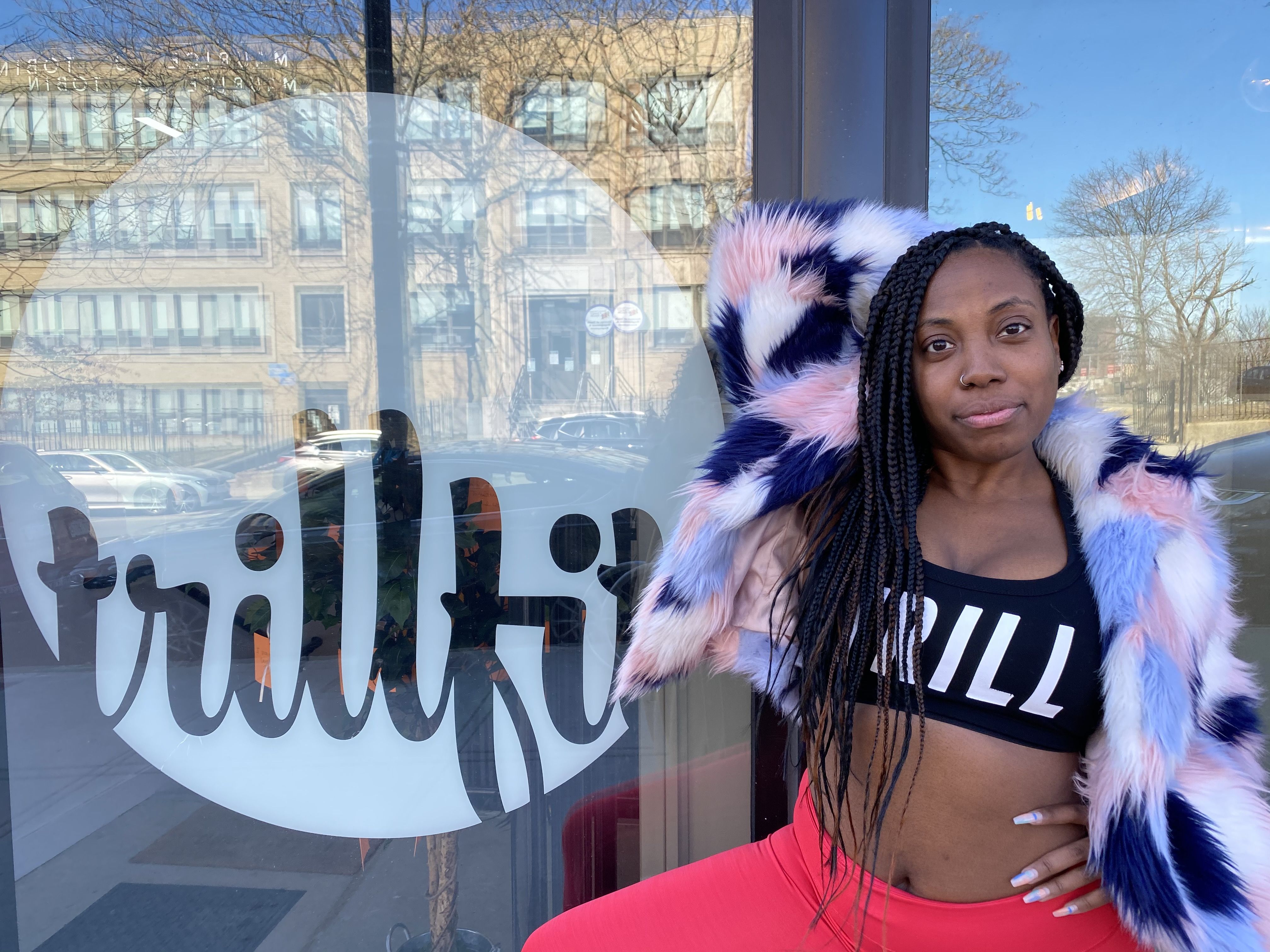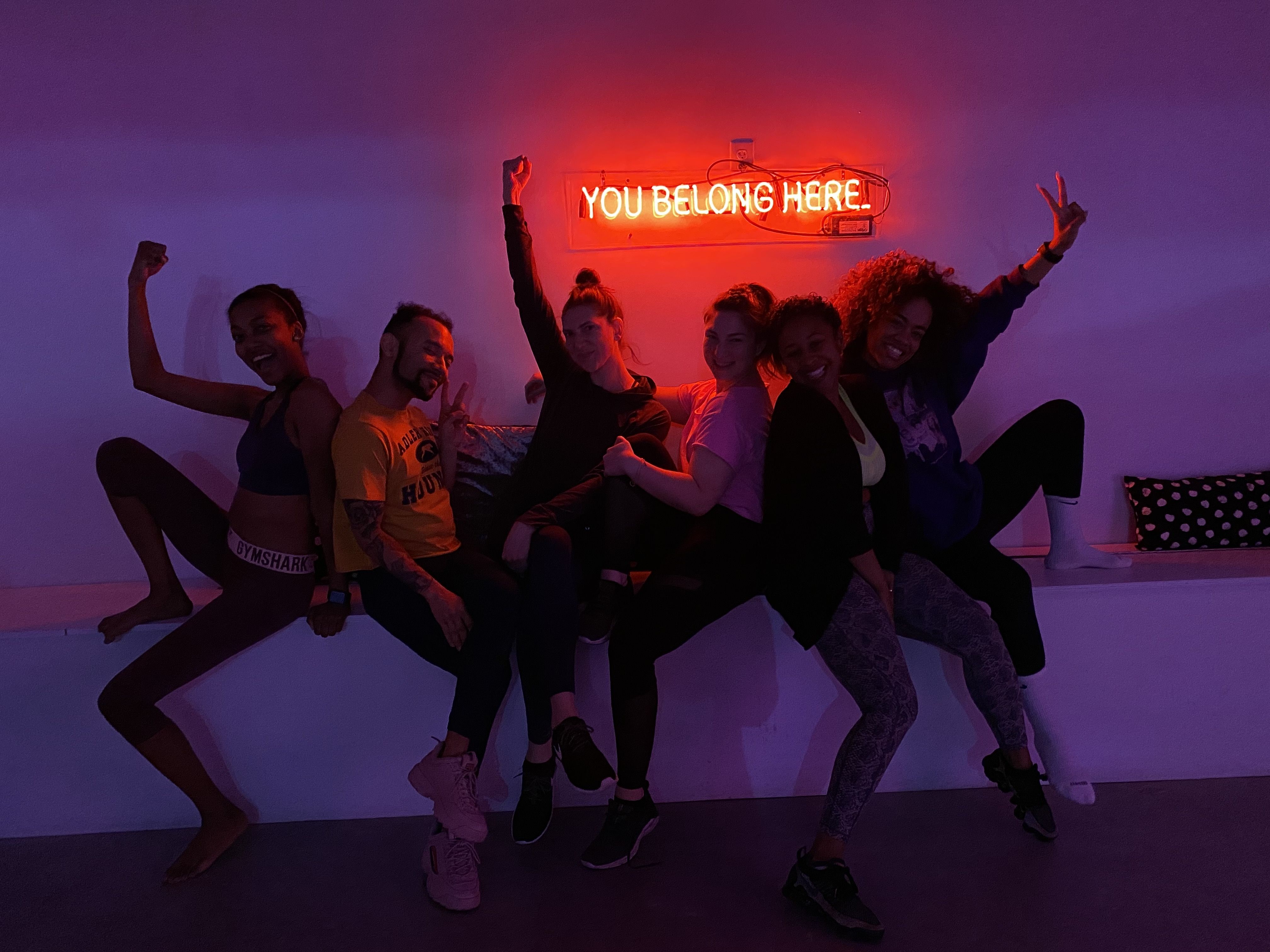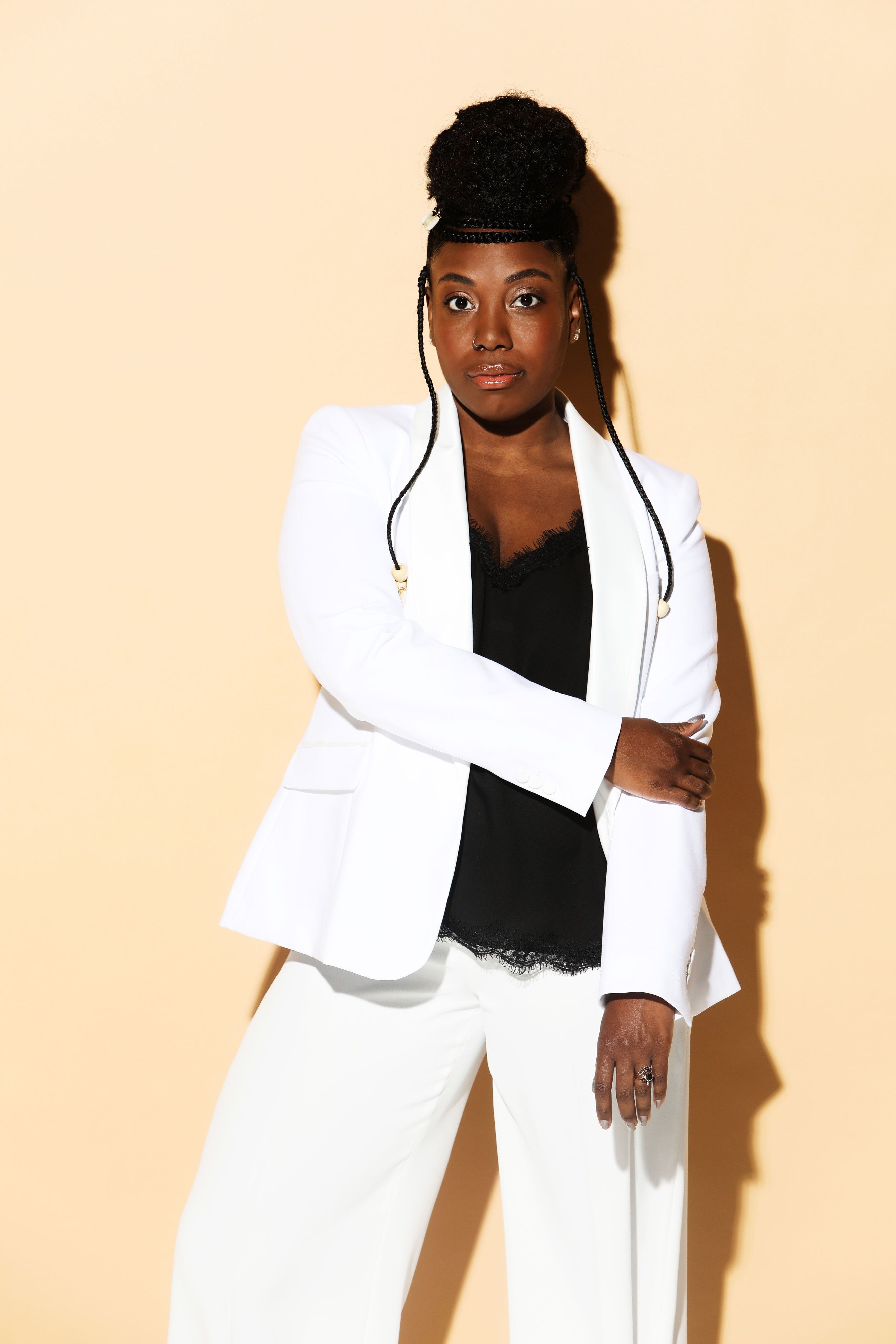
About six years ago, I got a membership to a high-end gym chain and started buying class packs at an upscale boutique fitness studio. It really made me feel like I’d “made it” in my career.
But as much as I’d been looking forward to working out in these luxe spaces, I noticed myself only going once every week or two. I realized that it was because I barely ever saw any people of color in them. I was almost always the only one, with the exception of the occasional Black and brown person who was a member of the facility crew, cleaning the floors.
It hit me that I didn’t feel like I belonged in these spaces. I didn’t see instructors or people enjoying these services who look like me. I felt like the gym and studio weren’t created for me.
I had no fitness background, but I had a marketing one—at the time, I was senior manager for men’s lifestyle at PUMA. I talked to some friends, one of whom was a fitness instructor, and decided to do a fitness pop-up in September 2015.
I only had a rough concept—an idea that we could make a space that was cool and fun and dope and something that I would want to be a part of that celebrated wellness and was fueled by hip-hop. I also had a name: I put “FIT” at the end of “TRILL,” which is a word that combines “true” and “real” and is used a lot in Southern hip-hop. My instructor friend said she would teach a Pilates class, and a friend of a friend connected me with famous choreographer Laurieann Gibson, who I flew into Boston to teach a dance class.
That first event was filled primarily with colleagues and friends, but 65 people registered, and that was my first sign that we were onto something.
We were able to start doing pop-ups once a month, then twice a month, and in 2017, we signed a contract with a shared space to do four and eventually six classes a week. I also got a Yoga Sculpt certification from CorePower Yoga. In November 2018, we opened the TRILLFIT space in the Mission Hill neighborhood of Boston.

Everything has been completely self-funded. I’m still also working full-time in a corporate job (while TRILLFIT was in its early days, I was the head of lifestyle marketing for North America at New Balance, and I now oversee the marketing team for INBOUND, an event that’s hosted by HubSpot). I work a ton, and it has been crazy, but I’m hopeful that I’ll be able to run TRILLFIT full-time at some point.
People tell us all the time that they’ve never been to a space as diverse as TRILLFIT, with real bodies, real people.
We have a neon sign in the back of our studio that says, “You belong here.”
Both of our bathrooms are gender-neutral, and we also have a hair salon, Vanity Loft, that subleases from us—like a shop-in-shop—that does all types of hair: natural, wigs, sew-ins, color. Because for Black women, another barrier to entry for working out is: What am I going to do with my hair?
We currently have 23 instructors, and 20 are instructors of color. Part of the reason why the wellness industry is predominantly white is because instructor training often costs thousands of dollars, and it will take you a long time to recoup that investment. A lot of folks don’t have the upfront money to be able to do that. Our training program costs $300, and we offer opportunities like a scholarship program that will invest in the training of 20 instructors of color for people who can’t afford the $300 fee.

I feel like we’ve built a space where all people truly feel welcome: When we were open, you’d see a plus-sized white woman next to a woman in a hijab next to a 16-year-old Black girl next to someone in the nonbinary community. You just don’t see that in other fitness spaces, especially in Boston.
We started off 2020 stronger than ever.
In March, we’d gone more than a month with at least one sold-out class per day in the studio; I felt like we were really gaining traction.
I was also thinking about COVID-19 all the time, though. On Friday, March 13, I read a Wall Street Journal article about gyms and COVID-19, which made me feel really conflicted about our responsibility as a business. I saw just how much people needed the TRILLFIT space to deal with the anxiety and pressure they were feeling. But I remember sitting in my car on Sunday, March 15 and thinking, “If our goal is to provide access to wellness and improve health outcomes in communities of color, we cannot be open when we don’t understand the threat to our community.” The next morning, I sent an email to all of our clients announcing the closure.
We started our digital program immediately, offering all virtual classes for free and asking folks to instead support five organizations that are really close to our heart: About Fresh, The Greater Boston Food Bank, RESIST, Violence in Boston, and the Boston Area Rape Crisis Center.
We’ll continue to offer on-demand videos completely free of charge each month, and our weekly live TRILLFIT Family and Meditation programming and online wellness conversations will also remain gratis. On July 1, we launched a digital membership for our live Zoom classes. We also recently released a 30-Day Guide to Getting Well for $60.
TRILLFIT will exist as a physical space again, but we haven’t opened our studio back up, even though the government said we could. Instead, we’re continuing to lean into our digital programming and hosting small outdoor classes. We want to make sure that everything is truly safe for our employees and our clients. We’re taking it very seriously, especially because we’re an organization that’s rooted in health equity.

I think the biggest thing about returning to working out in-person post-COVID-19 is that it takes a lot of trust for you as the client to walk into a space and know that someone is holding your safety in high regard: You need to trust that you can ask the organization questions, that they’ll be truthful in their answers. You need to trust that they’re taking every precaution they can to preserve your life.
Wellness is holistic: It’s your emotional, mental, physical, and social well-being. And feeling like you belong someplace is an element of social wellness. If you don’t feel that you deserve to exist in a space, that has an effect on your health.
This is the time to say: We understand that wellness—despite everything that it stands for—has not been welcoming, but now’s our time to reimagine it and get it right.
There’s a lot of sad things happening in the news; there are pandemics—both literal and figurative—that we’re battling right now. The biggest thing that we need in order to be able to come through this on the other side is wellness, and we need for everyone to feel like they deserve it. It hasn’t been that way, especially in boutique fitness.
What I really want folks to take away from my experience is that you can rebuild the system, and all it takes is showing up and being intentional. At TRILLFIT, we want to see other brands and studios and gyms follow our lead and create more inclusive spaces, because we need them. People’s wellness is a matter of life and death, and everyone deserves to have an opportunity to be well.
Source: Read Full Article